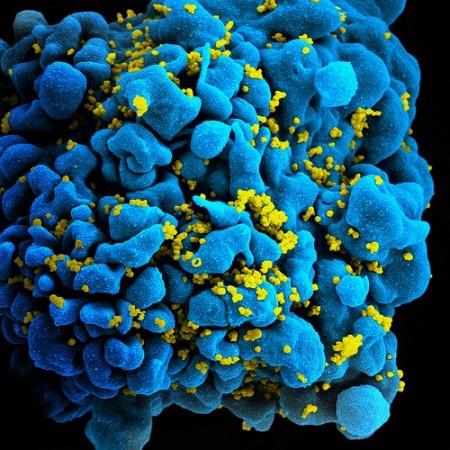
A vaginal gel can protect women against HIV (human immunodeficiency virus) infection, even three hours after the virus exposure.
Interestingly, the antimicrobial gel, when applied either 30 minutes prior to the sex or three hours after the intercourse, succeeded prevention of simian/human immunodeficiency virus (SHIV) in monkeys, Health Day reported. While applying the gel prior to the virus exposure protected two out of three macaques, administering the gel three hours after prevented infection in five out of the six animals tested.
The gel mainly contains raltegravir (Isentress), an antiretroviral drug widely used to treat HIV infection.
HIV infection involves integration of the virus DNA into a person's DNA. Researchers led by Walid Heneine, from the US Centers for Disease Control and Prevention found that the DNA integration occurs only six hours after HIV exposure. The gel, when applied during this period, stops HIV from transmitting its DNA into the human cells.
"The DNA degrades and the cell does not become affected," Heneine told Health Day.
For the study, researchers conducted experiments on 23 macaques. In the first stage, researchers exposed 13 monkeys to HIV twice a week for nearly two months. Three monkeys used the gel 30 minutes before the exposure, while the rest 10 received a placebo gel. Only one monkey in the first group contracted the deadly virus compared to nine in the placebo group.
In the second experiment, six monkeys received the gel and four monkeys were given a placebo gel, nearly three hours after the virus exposure. Of the total, five monkeys- one from the gel group and four from the second group- contracted HIV.
Experts welcomed the findings and said that the new gel can be of great use while being exposed to the virus unexpectedly. "If you're having sex that's in any way not anticipated, you might not have an opportunity to apply the microbicide before the sex happens," J Rowena Johnston, vice president of research for amfAR, the Foundation for AIDS Research, told Health Day. In the heat of the moment, you might not always have time to say, "Stop, put everything on hold while I put this product in."
"You can imagine this to be a useful product to have, if it were something you could buy over the counter and have at home just in case," she added, later.
The study has been published in the journal Science Translational Medicine.










